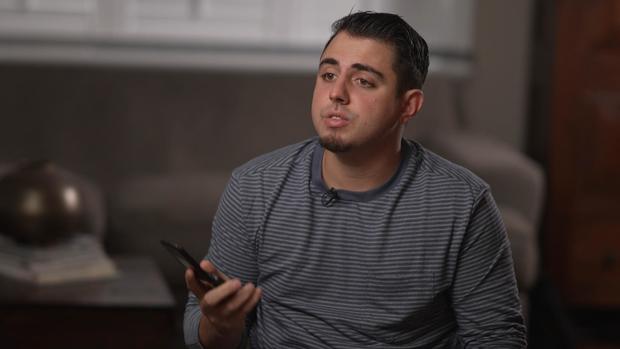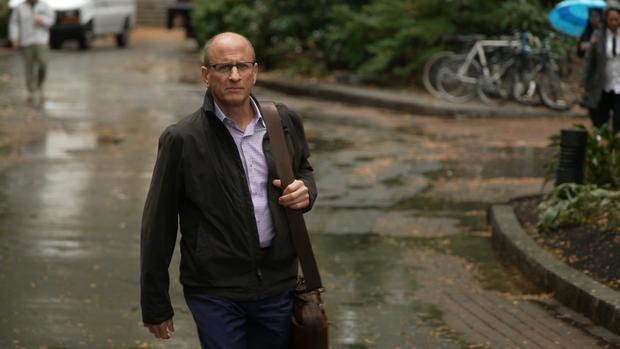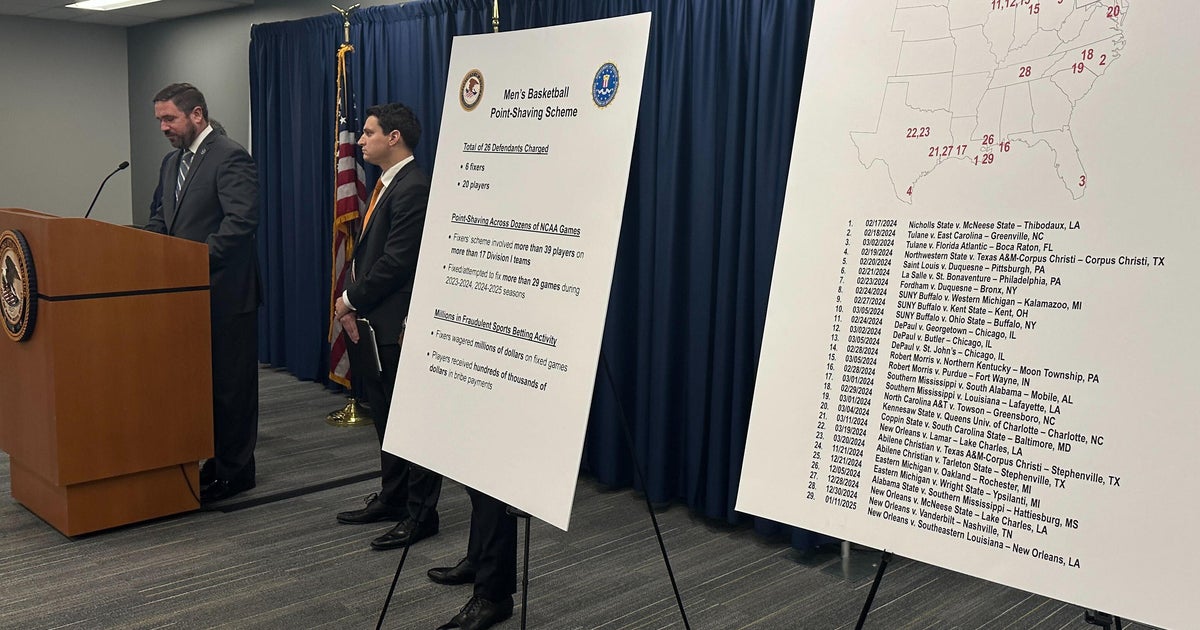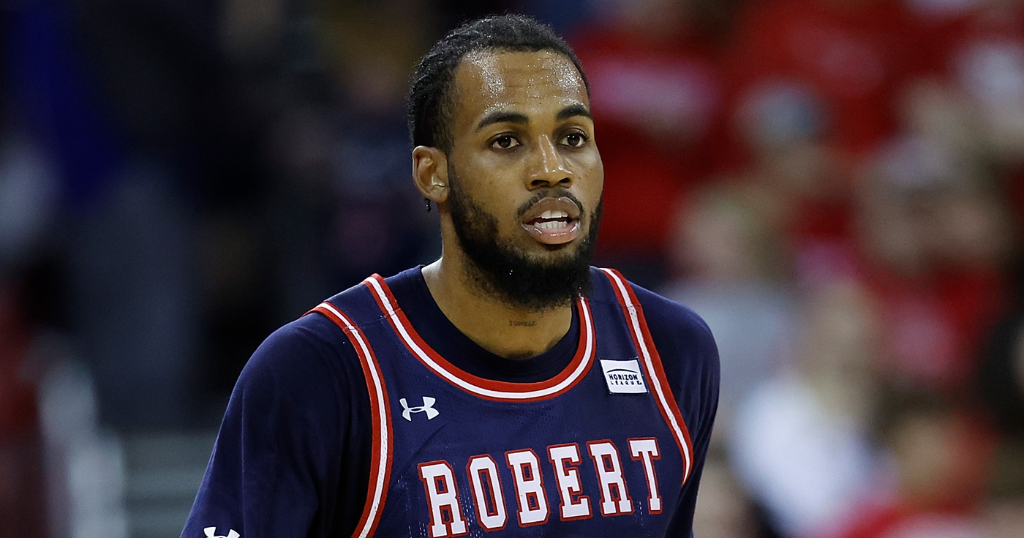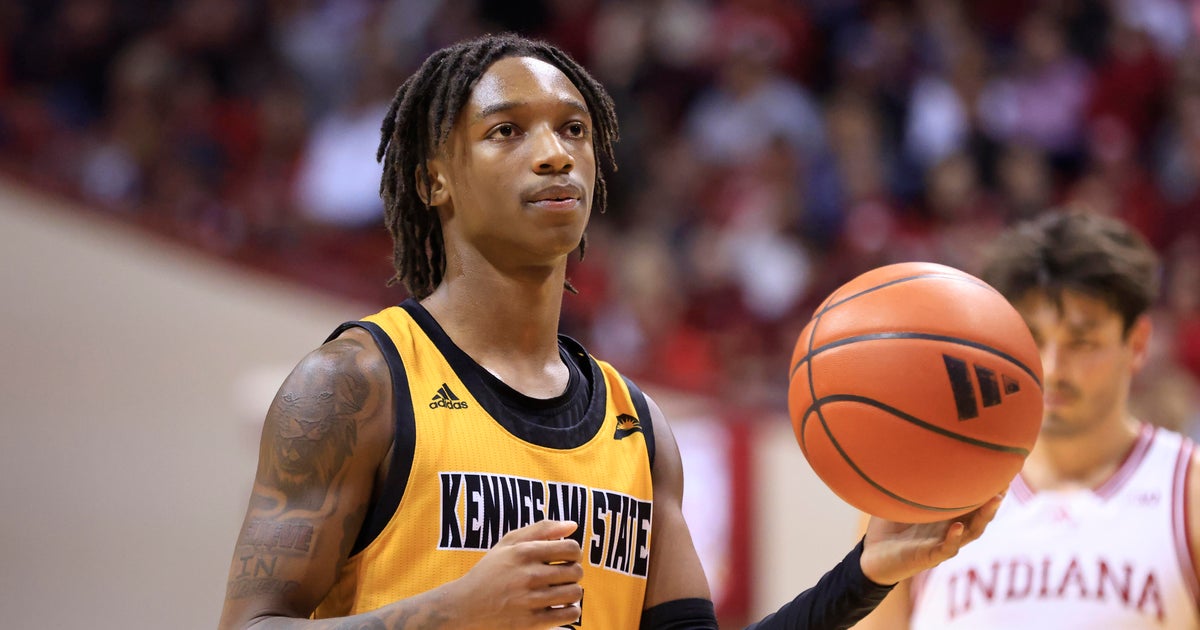Young gamblers place sports bets while showering, wager away student loan money, addiction therapist warns
A 26-year-old gambling addict, whose problem started in high school, downgraded to a flip phone — free from the apps that made betting on sports all too easy for him.
In the throes of addiction, Joe Ruscillo would sink his paycheck into betting each week. He'd gamble in the middle of the night and at family functions, deleting the apps one day, reinstalling them the next.
"I would place a bet on anything, anywhere, at any time," he said.
Ruscillo is not alone in his struggles with sports betting addiction. There's been a surge in young gambling addicts since the Supreme Court cleared the way for legalized sports betting in 2018.
Gamblers are overwhelmingly young men
According to a new Siena College poll, the majority of online bettors are young men, and nearly half of them feel they're betting more than they should.
So far, 38 states and Washington D.C. have legalized sports betting. In the five years since New Jersey legalized online sports gambling, calls to the state's problem gambling helpline nearly tripled. The largest caller demographic: ages 25-34.
Today's desperate gamblers look and act differently than those of decades past, gambling addiction therapist Harry Levant said. Some of his patients are college students who have gambled away their federal student loan money. Others, he says, have gambled away inheritances.
"I have patients who gamble in the shower. I have patients who gamble before they get out of bed in the morning. I have patients who gamble while they are driving. There are no guardrails," Levant said.
Ruscillo says he believes sports betting is more prominent among young people than ever.
"The sportsbooks and the commercials and the leagues themselves are making it look so cool to gamble and risk your money," Ruscillo said.
Man against machine
Gambling companies — armed with artificial intelligence, data and engineering — entice fans to make snap bets, not just on games, but on every play within games.
The early effect has been billions in revenue for gambling companies, leagues and state governments with a fresh tax stream.
The opportunities for action within these sports betting apps are limitless. Live in-game microbetting allows users to wager on every pitch, serve and snap. Using algorithms powered by AI, sportsbooks like DraftKings and FanDuel refresh the odds constantly. The common fan cannot possibly calculate whether it's a good bet or bad bet, much less in real time.
Levant showed the betting options on DraftKings on a Sunday, pointing to a tennis qualifier match in Charlottesville. He said that the sportsbook was not designing bets on little-known players for fans of qualifier tennis in Charlottesville.
"They're designed for people who want more action," Levant said.
Levant views the embrace of online sports gambling as a public health emergency.
"They have so much information on you"
Matt Zarb-Cousin, who like Levant is a recovering gambling addict-turned-advocate, has successfully lobbied for stricter betting laws in the U.K., where gambling's been legal for decades.
Recently, Zarb-Cousin was able to use the U.K.'s public information laws to access data the betting company Flutter, owner of FanDuel, had gathered on one of its customers. That data was used to tailor offers and push notifications to keep the customer in action.
There were "about 93 different data points they [had gathered] on this individual," Zarb-Cousin explained. Those data points include information about when the customer bet, how much was bet and which marketing inducements worked, among other things.
"It's not a fair wager," Zarb-Cousin said. "They have so much information on you."
He said he has no doubt that Flutter has enough information to identify problem gamblers.
Flutter said that the company takes steps to protect what it calls "vulnerable customers," sometimes banning them outright. The two biggest sportsbooks in the U.S. — DraftKings and FanDuel — said the same, though declined to provide specific instances when they've done so. 60 Minutes had arranged to speak with DraftKings, but the company abruptly pulled out of a scheduled, on-camera interview.
Bill Miller, president of the gambling industry's chief trade group, the American Gaming Association, said that he's skeptical that there has been any rise in gambling addiction since the Supreme Court opened the door to legalization in 2018.
"I don't believe that there is an addiction to mobile betting any more than there is an addiction to utilization of your phone for any other reason," Miller said in an interview.
Any increase in the rate of problem gambling, he insisted, could stem from the fact that the industry itself is flagging at-risk bettors more often.
"The illegal industry doesn't flag any of them," Miller said.
Waging war against mobile gambling addiction
Miller said that sportsbooks do look at betting patterns on their platforms to spot problem gamblers, but acknowledged that a uniform, industry-wide policy on that is still a work in progress. He said that the gambling industry does need to make sure people are given the resources necessary to mitigate the risk of addiction.
Yet, for gamblers trying to quit betting, the sportsbooks often direct them to a glaringly old school solution: a 1-800 number — an approach that Harry Levant views as inadequate.
"It takes the entire onus, puts it back on the individual," Levant said. "To take an addictive product like gambling and microbetting, deliver it in light speed with the use of artificial intelligence, and then say to people, 'But now use this responsibly,' it is wrong."
Recently, Levant paired up with Dick Daynard, a law professor at Northeastern University and architect of the first major lawsuits against the big tobacco companies, as well as Mark Gottlieb, a public interest lawyer at Northeastern. In December, the Northeastern team filed the first in what they say will be a series of lawsuits, suing DraftKings in Massachusetts for deceptive advertising, claims DraftKings says it "disagrees with."
The Northeastern team is also lobbying Congress to enact federal regulations. They say the current mishmash of state-by-state policies just isn't working.
"It's sometimes described as the Wild West, because there's almost no controls at all," Gottlieb said.

